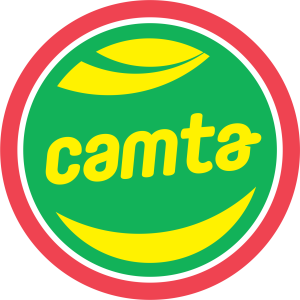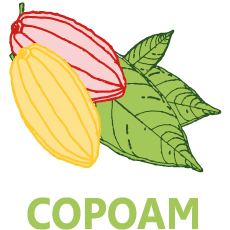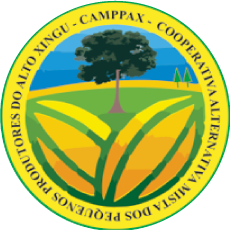Contact
Fale with us
Estamos abertos de Seg. à Sex., das 7:00 às 16:30 horas.
Telephone
+55 (91) 3278-0260
ocra@ocracacau.com.br
Andress
Estr. do Tapanã, 182
Tapanã (Icoaraci)
Belém/PA • 66825-010
About us
Ocra Cacau
Ocra Cacau da Amazônia is the newest cocoa crusher in Brazil with a strong presence in the Brazilian Amazon in the state of Pará. With a crushing capacity of 36,000 tons/year, it specializes in cocoa products such as: cocoa mass, cocoa butter and cocoa powder. Serving both the domestic and export markets.
The company also has one of its biggest differentials: operating with almonds of unique determination – “SINGLE ORIGIN 100% Brazilian Amazon”. What guarantees its customers the high quality of raw materials added to a robust base of sustainable, certified, traceable and safe origin.
With a key role in the regional chain of sustainable cocoa commercialization of local communities, Ocra is responsible for bringing the flavors of Brazilian forests to the table of thousands of people from all over the world.
Producing and serving with pride, affection and dedication the largest world factories of chocolates, cakes, biscuits, chocolate and cosmetics, Ocra Cacau is highlighted in the domestic market and mainly in exports of determined origin.
About us
Quality and Process
Ocra Cacau da Amazônia is the newest cocoa plant in the Americas. It has quality assurance in its processes. The company has 100% new machinery, automated and configured for state-of-the-art processing.
Its processes are supported with the SGO – Ocra Management System, which is the basic structure for the standards recognized worldwide as ISO-9001 and FSSC-22000, in addition to the robustness of the HACCP installed in the industrial plant.
In addition, its laboratories have a quality control and development research structure, properly equipped and with a trained team, which is qualified for sending samples, monitoring material performance data, testing raw materials and finished products.
The new developments are a differential in flexibility and tailor-made service (Tailor Made) executed at Ocra Cacau. Which are subjected to quality and performance analyzes and validations before being sold on an industrial scale by the company.
Previous
PreviousMission, vision and values
NextAbout us
Mission
Add sustainable value to the business using the concept of Standing Forest, development of local communities, in addition to improving the income of Brazilian Amazonian cocoa within the state of Pará.
Eyesight
Provide high quality food ingredients in a creative and sustainable way, with innovative and differentiated solutions.
Values
• Commitment
• Respect and focus on the customer
• Ethic
• Sustainability
• Confidence
• Excellence and Innovation
• Human relations
Previous
PreviousFood quality and safety policy
NextAbout us
Food Quality and Safety Policy
We, employees and shareholders of Ocra Cacau da Amazônia compose an industry that manufactures cocoa-based products in their essence, aligned with the Mission, Vision, Values and Strategy of the Business, have as direction and commitment:
• Meet the expectations of our customers, providing quality products and services and without risks to their health and physical integrity;
• Meet legal and other requirements;
• Challenge yourself and surpass yourself every day, continually improving SGl, the company’s products, services and processes and promoting everyone’s development;
• Provide infrastructure and a good relationship between the parties, stimulating communication and internal and external participation;
• Encourage customers and third parties to follow this policy.
Previous
PreviousIso 9001 e Fssc22000
NextAbout us
Iso 9001
ISO 9001 is one of the norms of the ISO (International Organization for Standardization) system, an organization recognized worldwide and which today is used as a reference in management systems, related to Quality management. Its implementation can be carried out in companies of any nature, therefore, it is not specific to industries or to the food segment, as is the case of 22000, which can only be implemented by companies that are part of the food chain.
This standard focuses on customer satisfaction and continuous improvement, which allows organizations with its implementation, a higher level of competition in the market in which it operates, improvement in business management to meet customer needs, optimization and performance improvement processes with consequent savings, greater involvement and commitment of employees and improvement in the way of demonstrating their controls and compliance with legal, regulatory and customer requirements. Its establishment can be done alone or in conjunction with other ISO standards, according to the type of company, something that is facilitated by the fact that the standards present requirements common to all of them.
FSSC 22000
FSSC 22000 is a globally recognized certification scheme for food manufacturers that includes the food safety management system in accordance with ISO 22000, prerequisite programs based on ISO 22002, and additional requirements specific to this standard. Its acronym means Food Safety System Certification , which in Portuguese means “Certification in the Food Safety System”. Its implementation today is considered of extreme importance in industries of the sector due to the greater worldwide recognition (GFSI), greater guarantee of product safety, market pressure, standardization of processes and greater retention of information and established controls.
Previous
PreviousRelacionamento
Dialogue between the parties
We look for suitable spaces to negotiate and build commercial relationships, always based on respect between the parties. OCRA visits its suppliers every year, understanding that in the field or at the headquarters of the cooperatives it is the most appropriate environment and where farmers feel more comfortable talking.
Balance between the parties
We work to establish a good process for those who sell and those who buy. Building a relationship in the cocoa production chain where all parties win is fundamental.
Transparency in negotiations
Clear rules for both parties. We build agreements with cooperatives and producers through crop or contract planning, exhaustively debating deadlines, production goals, payment method, always taking into account the peculiarities of each group, family farmer or rural producer.
Access to information
Always provide the necessary information to help in negotiations, in a clear and organized way.
Relacionamento
Respect for the peasants’ way of life
Understanding the peculiarities of each region to make the operations viable is essential for the partnership. Cooperatives have different methods of social and productive organization than other suppliers, influenced by the environment they live in and the local ways of life and culture.
Respect for the environment
We discuss potential actions with the cooperatives to facilitate the environmental management of family production units, and through a system of periodic field checks to ensure that our suppliers respect and work for the conservation of natural resources.
Search for joint solutions
When cooperatives find it difficult to solve problems in the field, when planting crops, harvesting and post-harvesting, we try to help in the search for joint solutions, transferring technologies when it is within our reach, or promoting links that can solve the mapped obstacles.
Cooperatives
SAFTA – Tomé-Açu Agroforestry System. Such a system is not aimed at chemical or pesticide sources. It is based on the consortium of several Amazonian fruit plants with forest recovery within the concept of agroforestry polyculture for recovery and sustainability. The main crops are: cocoa, cupuaçu, açaí, passion fruit, Brazilian nuts, bacurí and uxí.

Cooperatives
Wild cocoa and native cocoa, that is, one that was not planted by anyone. It was reproduced in the forest in a natural way and not as a way of culture. People from the riverside and from the islands, most of them thriving in a natural way without human management, only with collections. There are thousands of square kilometers of islands in the state of Pará just outside Belém, placing the greatest emphasis on Marajó Island – the largest river island in the world. This cocoa has a unique and special flavor since it is natural, healthy and without pesticides. In addition to being part of the local diet that is based on fishing, cassava, vegetables, nuts and other forest collections, in addition to tourism.



